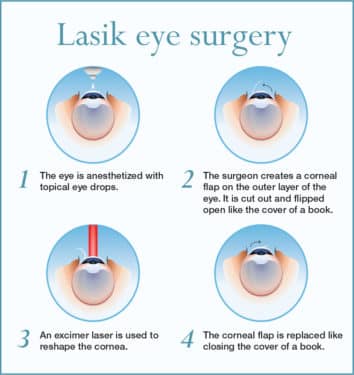What You Might Not Be Told Concerning Refractive Surgical Treatment: Insights From The Within
What You Might Not Be Told Concerning Refractive Surgical Treatment: Insights From The Within
Blog Article
Web Content Composed By-Johansson Perkins
When taking into consideration refractive surgical treatment, you might focus on the promise of clear vision, yet there's even more under the surface. Many individuals ignore the covert risks that feature the procedure, consisting of prospective issues and a challenging recuperation. Comprehending what to truly anticipate can make all the difference in your decision-making process. Are you all set to discover the realities that could affect your vision trip?
The Covert Threats of Refractive Surgical Procedure
While many individuals look for refractive surgery for more clear vision, it's essential to recognize the surprise dangers entailed.
You may experience issues like dry eyes, glare, or halos around lights, which can influence your everyday activities. There's also a possibility that your vision won't improve as expected, or it could even get worse.
Some patients report frustration, resulting in the demand for glasses or get in touch with lenses once again. In unusual instances, a lot more serious difficulties may occur, such as infection or corneal scarring.
It's vital to talk about these threats with your cosmetic surgeon and consider them versus the possible advantages. Being notified helps you make a better choice regarding whether refractive surgical treatment is right for you and what to anticipate throughout the process.
Navigating the Healing Process
As you browse the recovery procedure after refractive surgical treatment, it's essential to follow your specialist's directions closely to make sure the very best possible end result.
You'll likely experience some discomfort and obscured vision originally, which is normal. Relax does cataract surgery require anesthesia as feasible, preventing screens and intense lights for the initial couple of days.
Do not neglect to make use of the prescribed eye drops to stop dryness and advertise recovery. Use sunglasses outdoors to shield your eyes from UV rays.
It's critical to avoid massaging your eyes and follow any type of task restrictions your doctor recommends, especially in the first week.
Keep all follow-up consultations to monitor your recovery development, and do not be reluctant to connect to your doctor with any worries.
Realistic Expectations: Results and Limitations
Adhering to refractive surgical treatment, it is necessary to understand what you can genuinely anticipate regarding your vision end results. Many clients attain 20/25 vision or far better, but ideal eyesight isn't ensured. Some may still need glasses for specific tasks, like reading or driving at night.
It's crucial to have reasonable assumptions concerning the potential for minor vision changes during the healing procedure.
Furthermore, https://www.health.harvard.edu/diseases-and-conditions/are-you-at-risk-for-a-secondary-cataract as age, pre-existing conditions, and the sort of surgical treatment can affect your outcomes. While problems are uncommon, they can occur, so discussing these dangers with your surgeon is important.
Conclusion
Finally, while refractive surgery can provide the guarantee of clear vision, it's essential to identify the concealed dangers and obstacles that included it. By comprehending possible difficulties and being planned for the recovery procedure, you can set reasonable expectations for your results. Having open conversations with your surgeon will equip you to make informed choices that absolutely meet your vision needs. Keep in mind, understanding is essential to browsing this trip successfully.
